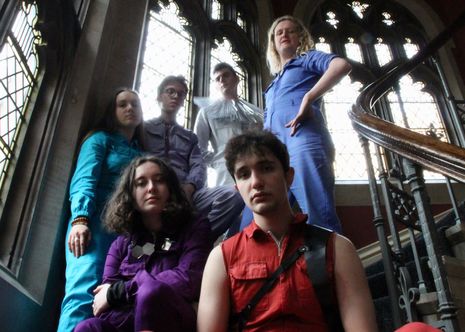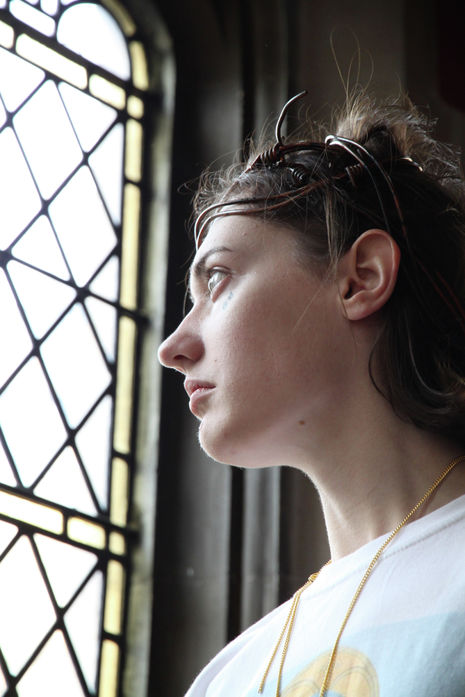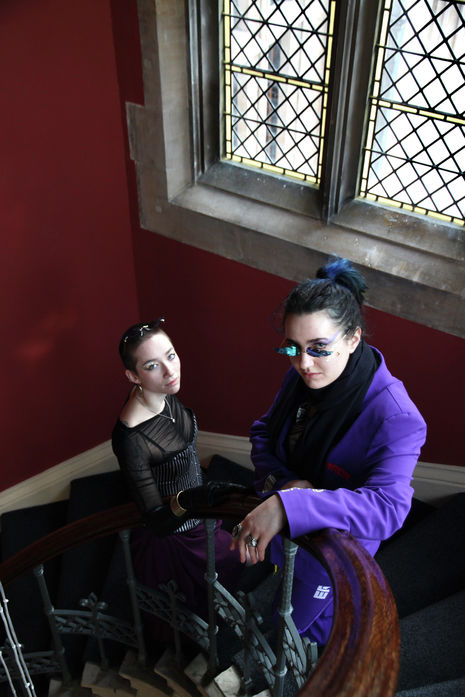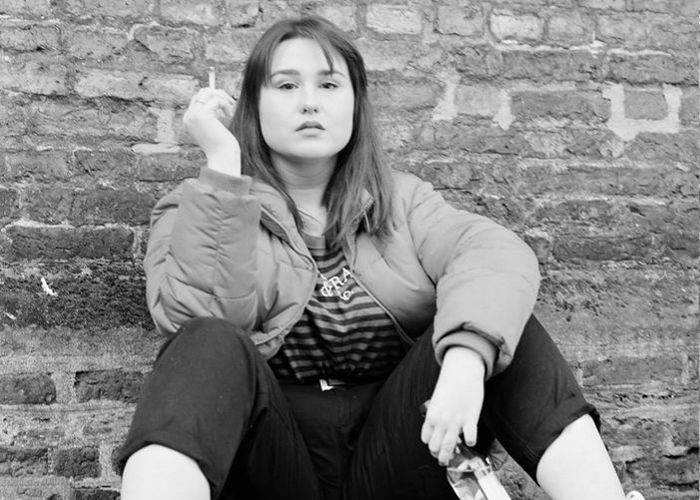SALOME: Defining queer desire
Director Olly Francis breathlessly explores the ambiguities and disorientations of queer theatre

Salomé in the Corpus Playroom? I mean that’s all very well and good, sounds interesting and whatnot... but, seriously, why is it set in the tube?
Firstly, it’s the DLR. Trust me: it’s the DLR. Hours of rehearsal time have gone into ascertaining that, yes, this simply must be the DLR. You can’t see the moon on the tube if it’s underground, can you? Nor is there any phone signal. And people are using their phones in this production. Okay, fine. We’re trying to say something about society. You know, the one we live in? Kids are always on their phones these days, not talking to each other. Terrible, right? This is a proper play with a moral message about how looking at your phone is bad and looking at people is good.
I’m not a Londoner. The tube has always been a startling and surreal experience. Looking at somebody on the tube is always jarring – especially a stranger. There’s the noise, that tunnel whoosh, the sheer quantity of people, that one crazy person, and endless pairs and groups of fascinating individuals, each with their own places to go, each in their own glorious, fascinating forms. It’s exciting, disorientating, yet familiar (perhaps to a large body of the student theatre scene here, at least). The act of looking is a charged one in this setting, and the desire to look is very charged. People are drunk there, sometimes. These things resonate with Oscar Wilde’s Salomé.

I hope that deals with the tube thing. Now let's deal with the gay thing.
We’ve been thinking a lot about what 'queer theatre' means and trying to challenge why some things 'count' as queer theatre and others don’t, while also considering the dangers of sensationalising queer culture. Though many – myself included – consider Salomé to be an amoral, chaotic, and possibly meaningless work in itself, bringing it to life through a production such as this one forces you to take a look at these questions.
To answer what makes for 'queer theatre', you first have to ask: what makes theatre 'queer'? I think it’s a mistake for that category to only contain plays that are, so to speak, 'gay plays'. People don’t always look at plays like Salomé and go 'oh, yeah. That’s a gay play' (although several productions have), but I would call it queer in many respects. There is something in the clash of speculation, immediate sensory experience, theory, thought, cynicism, humour, intimacy, detachment, noise, and silence that has certainly defined my queer emergence – though I can’t speak for all. That queer art of failure, of 'losing, forgetting, unmaking, undoing, and unbecoming' (Halberstam) clamours around in the turbulent heart of Salomé, and the turbulent heart of its queer author. Wilde is simultaneously never more concealed or exposed than in this often forgotten and unjustly hushed up play.
Salomé is concerned with desire and seeing. Our production – SALOME – is concerned with queer desires and gazes. We’ve queerly cast it. You’ll see non-binary actors and female actors playing male roles. Desires thus become queer desires, and gazing becomes a queer act.

Take a look at the people who have been attracted to this play – in the past and in the present. A fair proportion of the production team and cast are LGBT+. The costuming is queer, the sound is queer (largely drawn from the phenomenal hyperkinetic pop of SOPHIE). Even the lighting is queer (the colour scheme bearing lawsuit-worthy resemblance to the bisexual flag). I have begun to wonder if this is just an extremely indulgent way of avoiding sitting down with my parents and coming out with it – hi mum, by the way, if you’re reading this.
Despite appearances, I’m not just here to convince you that this production absolutely-for-certain qualifies as a 'queer production'. Queer things and people shouldn’t be obliged to go through some kind of trial before being granted the rank of validity (though that is not to say we can’t be met with analysis or critical thought). I can’t tell you what queer theatre is; I don’t know. What I can tell you is that resisting definition is queer, exploring boundaries is queer, being queer is queer and makes everything you touch queer (watch out).
A friend recently said to me that to be queer is to be last-minute. There is certainly a breathlessness in doing any ‘Week Two’ play in Cambridge Theatre, but the rush of it all never felt so relevant to the spirit of a production as it does now. It’s that same rush in the euphoria and despair of a compressed, last-minute queer adolescence; that same rush of discovering something about your gender or sexuality in the nick of time as something – or someone – becomes clearer to you than anything has ever been before, as we are (once again) redefined.
SALOME is at the Corpus Playroom from 28th January to 1st February.
 News / SU reluctantly registers controversial women’s soc18 December 2025
News / SU reluctantly registers controversial women’s soc18 December 2025 News / CUP announces funding scheme for under-represented academics19 December 2025
News / CUP announces funding scheme for under-represented academics19 December 2025 Features / Should I stay or should I go? Cambridge students and alumni reflect on how their memories stay with them15 December 2025
Features / Should I stay or should I go? Cambridge students and alumni reflect on how their memories stay with them15 December 2025 Fashion / The art of the formal outfit 18 December 2025
Fashion / The art of the formal outfit 18 December 2025 News / Dons warn PM about Vet School closure16 December 2025
News / Dons warn PM about Vet School closure16 December 2025










